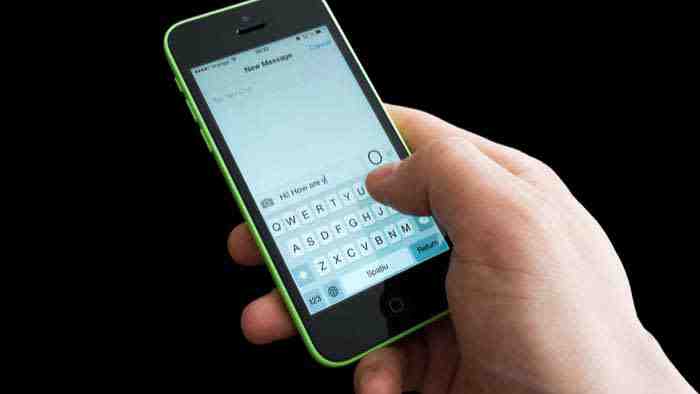We’ve all had close calls when it comes to getting our phones hacked.

Sometimes we click on a malicious link while browsing the internet. Sometimes we download a shady app that is sending data in the background . All of these things typically boil down to our own human error whether it be from lack of knowledge, or taking a chance on a shady app. However, it was recently discovered that an iPhone can be hacked simply by receiving an iMessage. This has brought more attention to a relatively new type of hacking tool known as “interaction-less” bugs.
Should I be worried?
At the Black Hat Security Conference this week, a Google Project Zero researcher showed that there are “interaction-less” bugs in iMessage that hackers can exploit to gain control . Once hackers gain control, they will be able to access your personal data on your phone.
You can click here to see the researcher’s full slideshow presentation.
The bugs were found by looking for flaws while reverse engineering iMessage. The researcher, Natalie Silvanovich, did not find any similar bugs in Android phones. However, throughout the years, she and her team have found similar bugs in apps like WhatsApp and FaceTime.

Ultimate Online Privacy Guide
What should I do?
The best thing you can do is to make sure you are updating your phone whenever you can. According to Silvanovich, Apple has already patched six of these bugs in updates.
You should also run regular virus scans on your phone to make sure that you are virus-free. We highly recommend using Malwarebytes since it is both free and efficient.

You can also block texts from unknown numbers so that you won’t hear from them again. To do this, follow these steps:
1. Go to the Messages app
2. Tap on the spam message you received to open it
3. Tap at the top of your phone until the “Info” button appears.” Tap “Info”
4. Tap on the number at the top of the screen
5. Scroll down to the bottom, and tap “Block this Caller”
6. You should stop receiving texts from this number altogether
If you do receive a shady text from an unknown number, you should block the caller, and then run Malwarebytes. Once you’re done, check and make sure that your phone is up to date.
Wrapping up
Although there is virtually no chance that your up-to-date iPhone will be hacked through this method, the question now remains: “How did Apple leave this vulnerability in the first place?” If you’re spending hundreds of dollars on an iPhone, you should rest assured that it won’t be easy for a hacker to access your personal data. Just recognize that your security depends on your vigilence.
Read more
New scam spotted on the Google Play Store ►
Security alert: new Netflix phishing scams ►
This ingenious phishing scam is targeting iPhone users ►
New year, new scams: what to watch out for in 2019 ►
